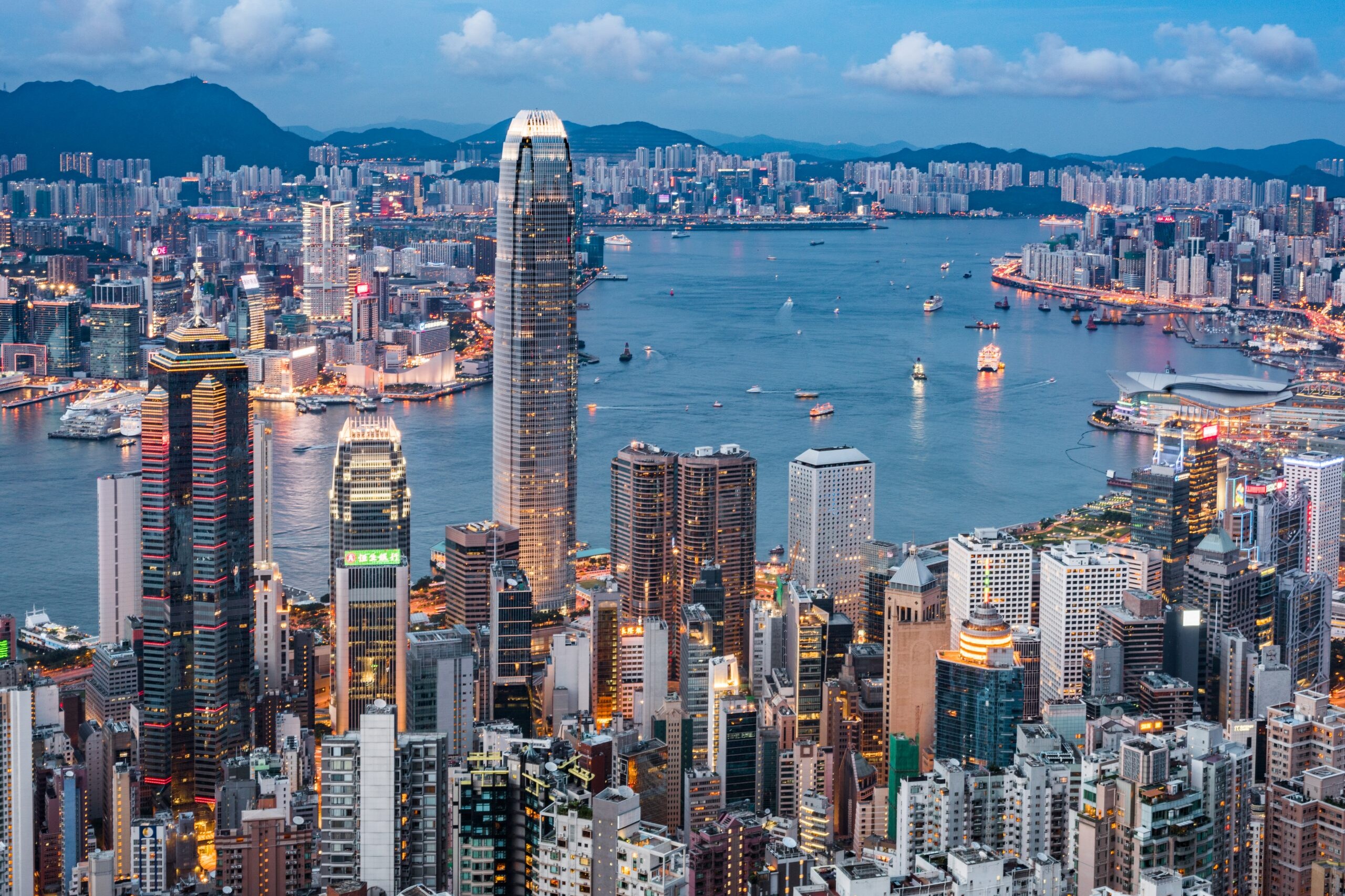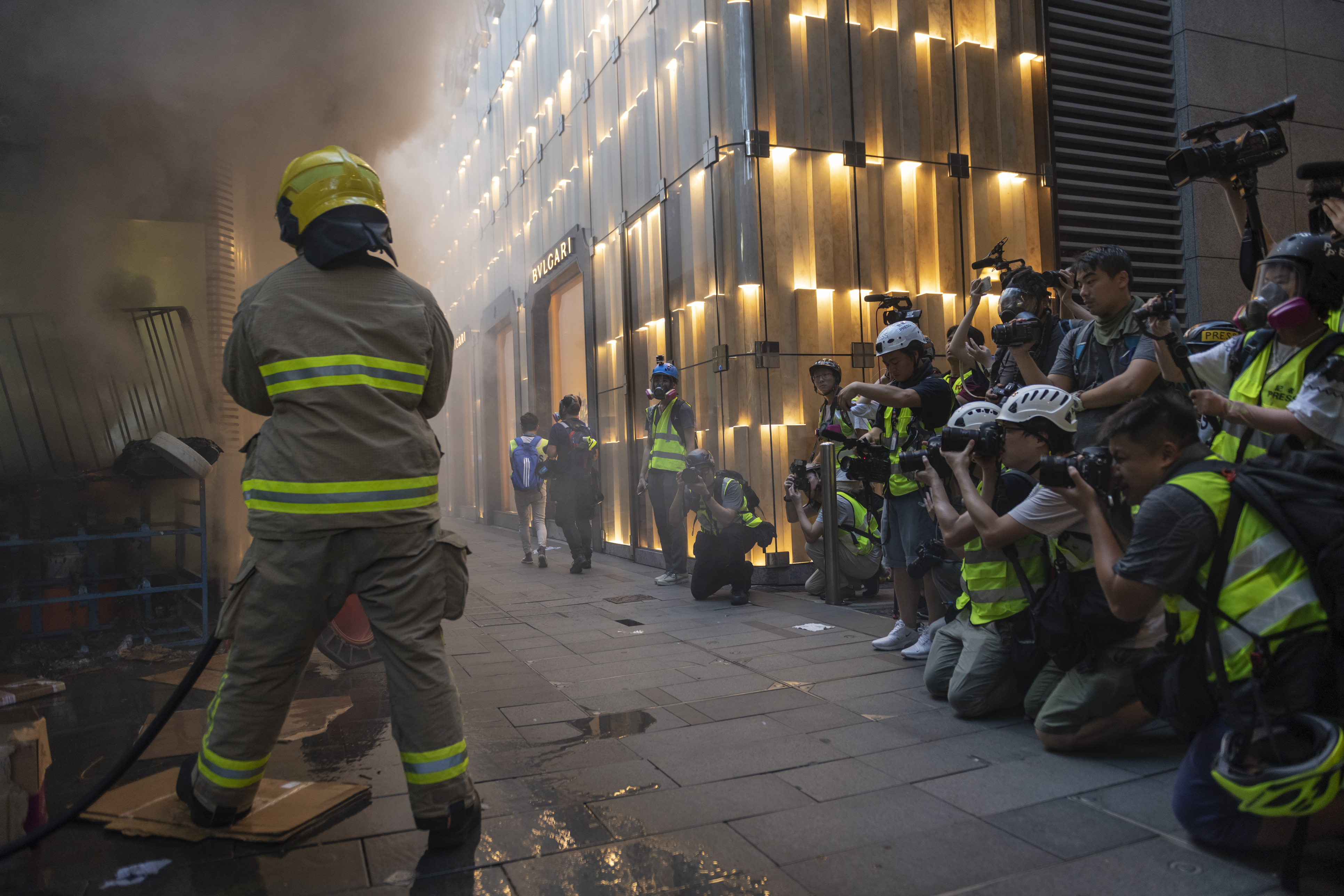Within the past year, Radio and Television Hong Kong (RTHK) and its journalists have been subject to official warnings, tightening restrictions, and “political persecution” in the form of a probation extension of hard-hitting journalist Nabela Qoser. The arrest of a RTHK producer earlier this week is just the latest in the string of mounting pressures.
Pressures on journalists in Hong Kong are not easing.
Since our last update in early October, it has been a difficult few weeks for journalists in the special administrative region but particularly for those at public broadcaster Radio and Television Hong Kong (RTHK).
The National Security Law, hastily passed on 30 June 2020, has so far had dire consequences for critical voices and press freedom in Hong Kong. The law – said to target secession, subversion, terrorism, and collusion with foreign forces – has recently left staff at the public broadcaster in the precarious situation of having to choose between editorial independence and allegiance to the government.
On 12 October, the broadcaster’s staff received a circular which stated that, under Article 6 of the new security law, appointees to the civil service who have joined since the law’s enactment must sign a written declaration on their commitment to uphold the basic law and swear allegiance to Hong Kong. More senior appointees would also be required to take an oath, in a move that could have significant implications for editorial independence and further self-censorship.
Meanwhile, the relationship between the public broadcaster and the Hong Kong Police Force (HKPF) has been tense. In June, RTHK was forced to suspend its 31-year satirical programme Headliner due to its critical skits of public figures and the HKPF. Then, in July, following a review of its “publicity strategies”, HKPF discontinued the long-running show Police Report. The show had represented a 47-year partnership between RTHK and HKPF. The police force recently said it will be creating its own weekly programme.
But the relationship between the broadcaster and the police force took another blow earlier this week with the arrest of RTHK producer, Choy Luk-ling, also known as Bao Choy. Choy was arrested and charged following a very public raid of her home, in relation to a 2019 report on police misconduct. Charged with two counts of violating the Road Traffic Ordinance, it is alleged that Choy made false claims when conducting vehicle registration searches. It is further claimed that the information she allegedly obtained was used in a way different to what was declared. In an RTHK article, one journalism professor noted that Choy’s accessing of vehicle registration information from a government database is a well-established reporting practice and her arrest therefore signals a shifting of the goal posts by the police. Choy is set to appear in court next Tuesday.
Read more: An urgent review of laws warranted after arrest of TV journalist (Editorial)
Despite denials from the police, Choy’s arrest is seen as another attack by the HKPF on press freedom. In denouncing the arrest, the Hong Kong Journalists Association (HKJA) and other press groups said that lawsuits against journalists who are simply conducting normal reporting duties are tantamount to suppression.
“We hope that [this] won’t become a trend, a very unhealthy, damaging trend, for people to make use of their power and resources to suppress media organisations, [in] particular those that they don’t agree with,” HKJA Chairman Chris Yeung reportedly said.
Meanwhile, the arrest has left the public broadcaster “afraid” and “worried” but nonetheless committed to the principle of editorial independence enshrined in its charter. RTHK Director of Broadcasting, Leung Ka-wing, said Choy’s arrest will have a “chilling effect on journalists”.
#RTHK chief Leung Ka-wing says the arrest of one of the station’s producers has left staff afraid and worried about whether they can carry on reporting news as before, but they won’t stop their investigative journalism and will stick to their principles. https://t.co/B9mGYj1OqM pic.twitter.com/VbXsIkzb2j
— RTHK English News (@rthk_enews) November 3, 2020
In the wider media landscape, journalists are operating in an extremely tense environment, worsened by the imposition of the new security law by Beijing as well as new accreditation rules, which would only recognise journalists from “internationally recognised and renowned” foreign media and news organisations registered with the government’s information system.
In a press briefing on Friday, Hong Kong Chief Executive, Carrie Lam, did not respond to questions regarding Choy’s arrest. Instead Lam said: “Press freedom is protected by the Basic Law, and we will not suppress press freedom. But media workers, of course, have to abide by the law”.
However, these assurances are doing little to reassure journalists and civil society groups, who have witnessed a dramatic erosion in journalist safety and press freedom in recent months. Hong Kong fell seven spots in this year’s RSF World Press Freedom Index, from 73 in 2019 to 80 in 2020. It is expected to fall further in next year’s report.
Header Image: Video record for live broadcasts. Hong Kong. Credit: pigphoto/iStock
Related Posts
1st October 2020
Further restrictions on media freedom in Hong Kong
New developments have painted an even…
17th August 2020
Another dark week for press freedom and critical voices in Hong Kong
The Chinese government’s new National…
29th May 2020
Hong Kong: Growing pressure on editorial independence and press freedom
The editorial independence of Hong…

